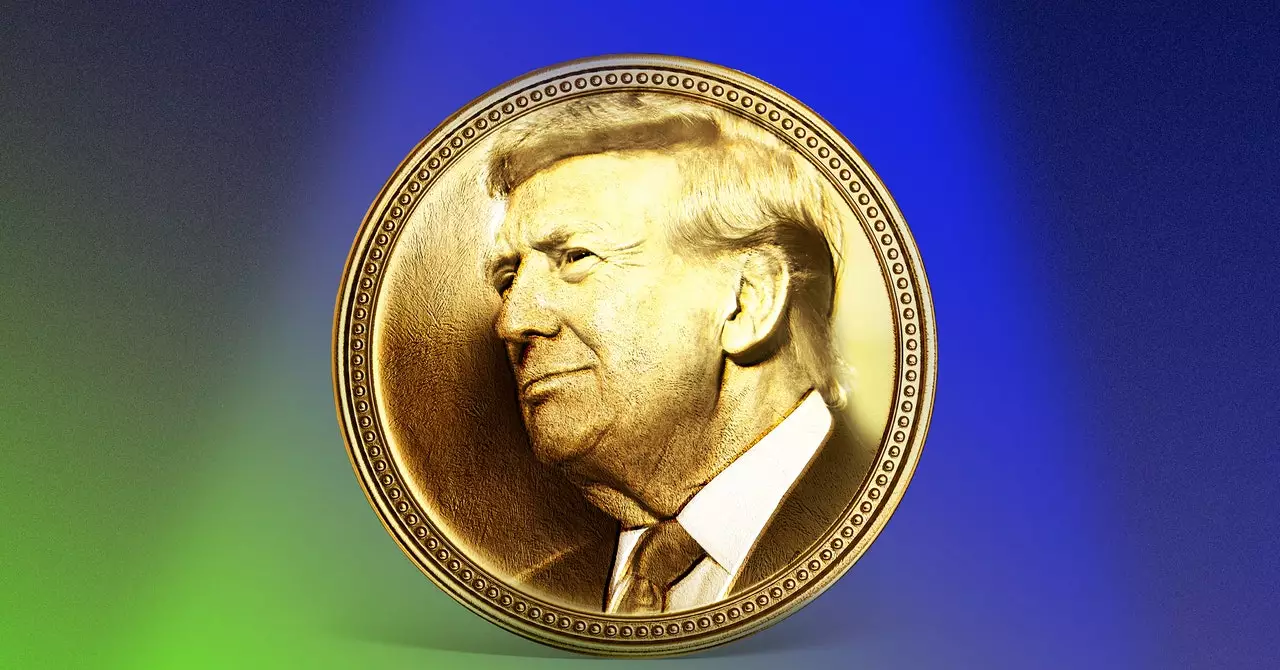The world of cryptocurrency has emerged as a dynamic and often unpredictable arena, one that has recently been further complicated by the political machinations surrounding former President Donald Trump. After initially dismissing Bitcoin as a “scam,” Trump has undergone a remarkable transformation, positioning himself as an advocate for the cryptocurrency community. This article will delve into the implications of this shift, exploring the potential ramifications for the crypto market, Trump’s political ambitions, and the broader context of decentralized finance (DeFi).
Historically, Trump has not been the most enthusiastic supporter of digital currencies. His disparaging remarks set an unfavorable tone for many in the crypto community. However, recent appearances at crypto events, particularly a conference in Nashville, Tennessee, suggest a strategic pivot. Speaking to a crowd of fervent Bitcoin supporters, Trump promised to turn the U.S. into the “crypto capital of the planet” and hinted at establishing a national “Bitcoin stockpile.” The question arises: what has prompted this turnaround?
This evolution appears to be a calculated move, likely aimed at courting a demographic that has gained considerable economic and political influence. The excitement surrounding cryptocurrency, particularly among younger voters, may well represent a new vector for political mobilization in the upcoming election cycle. Tyler Winklevoss’s remark about Trump being “orange-pilled”—a crypto term for being indoctrinated into the world of Bitcoin—further underscores this narrative of conversion.
In tandem with Trump’s rhetorical shift, the past year has seen a proliferation of cryptocurrencies closely associated with his brand. Projects like World Liberty Financial have been rumored to have roots in the Trump family, sparking speculation about the possibility of an official Trump-themed crypto token. This zealous activity is not merely speculation; tokens such as DJT have made headlines, soaring in value due to rumors linking them to Trump’s political ambitions.
However, the crypto community has also witnessed volatility that mirrors the unpredictable nature of political fortunes. For instance, DJT experienced a dramatic 90% drop in value following significant sell-offs. The implications of such volatility resonate beyond mere financial losses; they reflect a market that intertwines political sentiment and cryptocurrency valuation. This raises concerns about the ethical dimensions of leveraging political identity within the financial ecosystem.
While the allure of Trump’s political brand may draw initial interest, the reality of launching a successful crypto venture like World Liberty Financial is fraught with challenges. The decentralized finance landscape is crowded, replete with established players such as Aave and Compound vying for attention and market share. Zach Hamilton, founder of Sarcophagus, aptly noted that while marketing advantages abound due to Trump’s fame, they are not a substitute for the foundational capabilities necessary for success in a highly competitive environment.
Moreover, the skepticism of incumbents in the DeFi space is palpable. Industry leaders express a cautious optimism regarding Trump’s entry into the sector, recognizing both the potential for elevated visibility and the risk of reputational damage associated with inadequately tested projects. The complexities underlying DeFi may lead to misrepresentations, where users could be lured into a false sense of security should technological failures arise.
Trump’s foray into the crypto world meshes with larger political trends, particularly the alignment of cryptocurrency with right-wing political movements. The Republican party has become increasingly intertwined with the pro-crypto sentiment, suggesting that financial innovation may serve as a vehicle for furthering specific political agendas. Jacob Silverman, coauthor of “Easy Money,” aptly points out that the industry is now positioned as a “right-wing Republican commodity,” emphasizing its growing correlation with political fundraising efforts.
There is a sense that Trump’s engagement with crypto may also serve as a contingency plan should he fail to regain power in the upcoming elections. The enthusiastic reception at crypto events might convince him that this burgeoning space could provide an alternative route for financial gain, irrespective of his political trajectory.
As Trump reinvents his identity within the realm of cryptocurrency, the intricacies of this relationship portend significant consequences for both his political aspirations and the evolving landscape of digital currencies. The confluence of politics and finance presents a unique opportunity—one that could either bolster or undermine the integrity of the crypto market. Ultimately, as the industry grapples with its newfound rightward tilt, the coming months will determine whether Trump’s ambitions can effectively harness the energy of the crypto community or whether they will collapse under the weight of political and economic reality.

